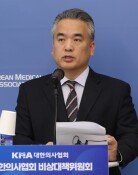Stronger won should serve as opportunity for Korean economy
Stronger won should serve as opportunity for Korean economy
Posted November. 20, 2017 07:26,
Updated November. 20, 2017 08:13
The exchange rate of the Korean won against the U.S. dollar fell below 1,100 won for the first time in 14 months, raising concerns over the consequent sluggish exports. On Friday, the won-dollar exchange rate closed at 1,097.5, down 3.9 won from the previous day in the foreign exchange market in Seoul. Showing a rising trend in recent months, the won has appreciated against the dollar 9.1 percent, compared to the end of last year, and gained 4.5 percent since October. A report by the Hyundai Research Institute warned Saturday that the South Korean economy can bear an exchange rate of 1,184 won to the dollar and a sharp increase of export prices denominated in U.S. dollars could weaken the price competitiveness compared with its competitors.
The won’s appreciation is attributable to positive evaluation of the South Korean economy in the foreign exchange market. In large part, the economy’s current account hit a record high in September and uncertainty in corporate investment has alleviated as the Seoul-Beijing dispute over a U.S. anti-missile battery deployment finally ended. South Korea’s major currency swap deals including a renewal of the swap agreement with China and a new deal closed with Canada have contributed to stabilizing the foreign exchange market of Asia’s fourth largest economy.
The exchange rates have been a double-edged sword for the Korean economy. The weaker won boosts exports while increasing the price of imported raw materials. But the stronger won reverses the situation. There are always two sides to the fluctuating currency, still negative aspects tend to be highlighted because South Korea is a small, open country easily influenced by external factors.
In the past, the financial authorities used to step in the currency exchange market to influence the rates by either vocal intervention or using foreign reserves, but now they do not make a direct intervention any more. South Korea is included on the U.S Treasury’s monitoring list, for accumulating large amounts of current account surplus with the United States. On top of that, it is on the verge of commencing the revision negotiations of the bilateral trade pact. Rather than focusing on monetary value varying between good and bad, the government, therefore, should double its effort to encourage local companies to merge and acquire foreign companies with technology and to expand their investment in plant and equipment within the country. Making the best use of the won’s appreciation as an opportunity to strengthen the competitiveness would be the best foreign exchange policy.







